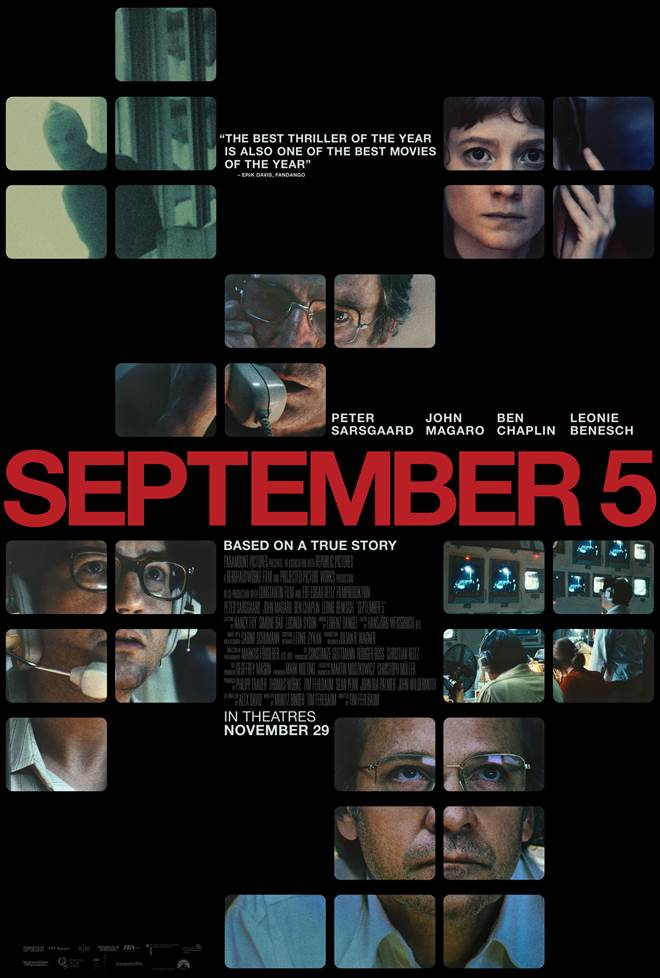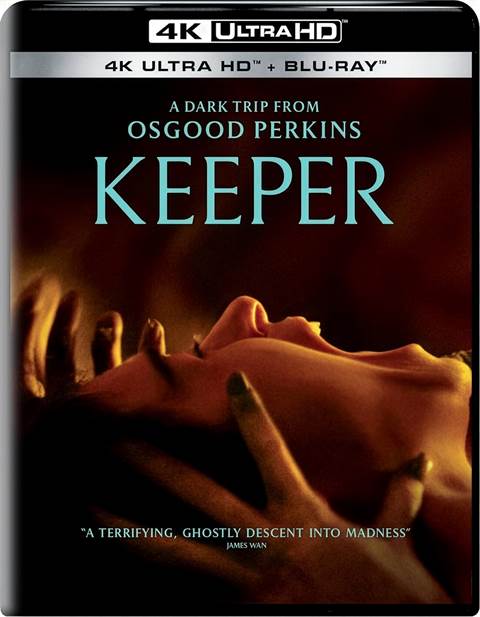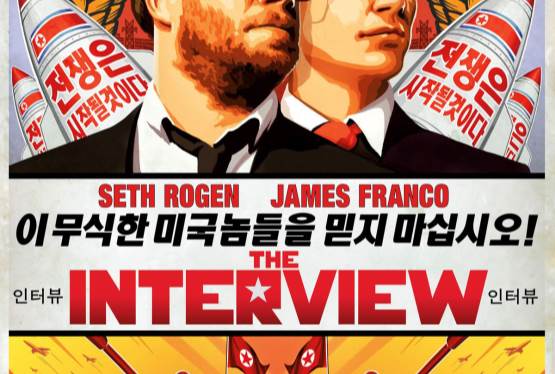Revisiting the 1972 Munich Olympics Tragedy
September 5, 1972. All eyes were on the Summer Olympics being held in Munich, West Germany. The home country, while outwardly trying to portray an air of peace and harmony after World War II, was still ripe for hostility. Security was considered to be inadequate, especially around the Olympic Village because, in an attempt to shed their previous militant image from 36 years earlier when Germany was under Adolf Hitler's rule, there was a glaring lack of armed guards everywhere. Despite this, everything seemed to be going well until shots rang out just after 4:00 am and 11 members of the Israeli Wrestling team were taken hostage or killed. The new film, September 5, offers an alternate view of the events.
Early in the morning, ABC Sports was broadcasting from Munich, recapping the day's events at the twentieth Summer Olympic Games. With less than an hour left of air time, everything changed when terrorists took 11 Israeli athletes and coaches hostage. While Roone Arledge (Peter Sarsgaard; Garden State) was fighting with ABC News Division for continued air time, Geoffrey Mason (John Magaro; Past Lives) was in the control room trying to figure out the best way to cover the evolving story.
Beginning with rolling huge studio cameras to the hill outside, ABC Sports suddenly had live coverage that billions of people were watching, including the terrorists. They were broadcasting live as the German police unsuccessfully attempted to ambush the terrorists who were watching the law enforcement members crawling towards them on the television set in the Olympic Village. ABC also had Peter Jennings and Howard Cosell inside the village giving live updates over telephones (remember there weren't any cell phones back then).
The September 5th attack was a tragedy that has been repeated in movies, books, and television. However, the story has never been told from ABC and Mason's perspectives, even though their coverage changed live broadcasts forever. This film's unique perspective is not the typical re-enactment of a historical news event.
Sarsgaad, Magaro, Ben Chaplin (The Thin Red Line), and Leonie Benesch (The Teacher's Lounge) are a group of talented Actors. They are a well-oiled machine coordinating to create a fast-paced, dramatic film, with Benesch stealing many of the scenes she is in.
Director Tim Fehlbaum (The Colony) finds just the right camera angles and the perfect pacing to produce this unique perspective without making it all seem muddled and chaotic. He also utilized actual footage of Jim McKay from the event and vintage lenses attached to digital cameras to match the look of the broadcast capabilities in 1972. This technique transports the viewer back to the period and makes the film seem as if it is a documentary of the ABC crew covering a major television event.
September 5, 1972, will be remembered as a terrific movie for many reasons. First, it marks a horrible day in the history of the world. Second, it forever changed the way broadcast news covers live events. Third, it transformed Geoffrey Mason from a cog in a corporate wheel into a journalistic superstar in mere hours.
While most films about that day focus on the athletes and the terrorists and the outcome, Fehlbaum's plot shines a light on an entirely different aspect of those 22 horrific hours. With a well-cast group of actors, a great script, and some smart, artistic choices, he creates a movie that is engaging and heart-wrenching all at the same time.
In the end, Mason's skill in the control room transformed the coverage of the attack by Palestinian terrorists from that of a typical sporting event to a greater international and historical news event and September 5 does its best to skillfully portray that story.
Grade: B+







